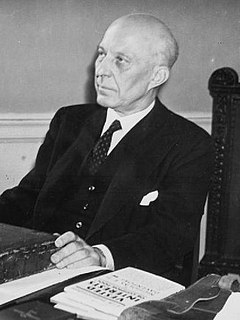The Bishop Auckland by-election, 1929 was a parliamentary by-election held on 7 February 1929 for the British House of Commons constituency of Bishop Auckland in County Durham.
By-elections, also spelled bye-elections, are used to fill elected offices that have become vacant between general elections.

In the United Kingdom (UK), each of the electoral areas or divisions called constituencies elect one member to a parliament or assembly, with the exception of European Parliament and Northern Ireland Assembly constituencies which are multi member constituencies.

Bishop Auckland is a constituency represented in the House of Commons of the UK Parliament since 2005 by Helen Goodman of the Labour Party.
Contents
The seat had become vacant on 22 December 1928 when the constituency's Labour Member of Parliament (MP), Ben Spoor had died aged 50. He had been elected for the previously Liberal-held seat at the 1918 general election, and held it through three further general elections. [1]
The Labour Party is a centre-left political party in the United Kingdom which has been described as an alliance of social democrats, democratic socialists and trade unionists. The party's platform emphasises greater state intervention, social justice and strengthening workers' rights.

Benjamin Charles Spoor was a British Labour Party politician. He took a particular interest in India.

The Liberal Party was one of the two major parties in the United Kingdom with the opposing Conservative Party in the 19th and early 20th centuries. The party arose from an alliance of Whigs and free trade Peelites and Radicals favourable to the ideals of the American and French Revolutions in the 1850s. By the end of the 19th century, it had formed four governments under William Gladstone. Despite being divided over the issue of Irish Home Rule, the party returned to government in 1905 and then won a landslide victory in the following year's general election.




